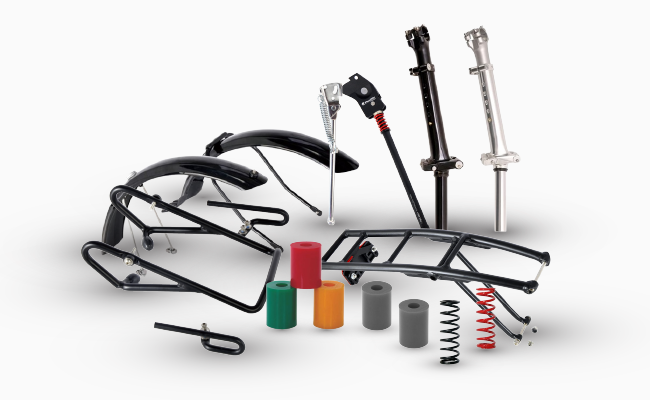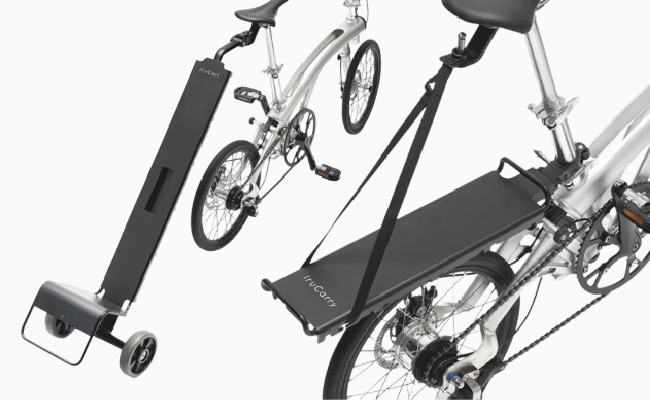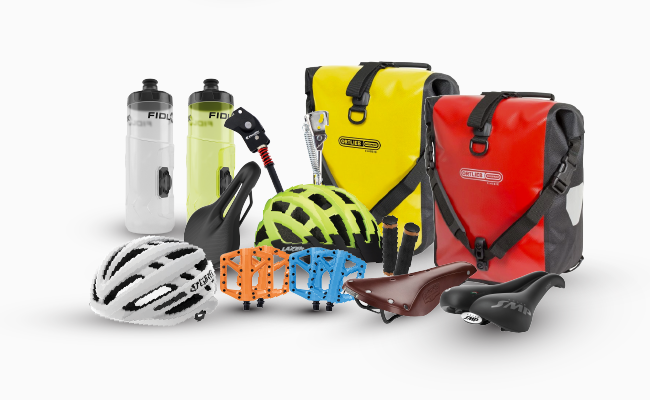
Folding bikes and fitness
Introduction
Finding the gym too crowded for your taste? Or bored of getting your daily steps in? Everyone understands the value of exercise, but many non-athletes may find themselves overwhelmed by the wide variety of available exercise methods and fitness trends. Sometimes it seems like there’s a new trending workout every month!
Fortunately, cycling has always been a tried-and-tested form of exercise that’s great for both your whole body and your mental health. While many people might be aware of the host of benefits cycling provides, they might scoff at the idea of exercising on folding bikes, since – with their smaller wheels – folding bikes might seem less sporty or fitness-oriented than conventional bikes.
In this article, not only will we delve into the benefits of cycling, we’ll make an argument for why foldable bikes may actually be superior to traditional bikes when it comes to health and fitness.
Health benefits of cycling
Many of you may be familiar with the old adage that an adult should get at least 150 minutes of moderate physical activity per week. However, it might seem difficult to fit 150 minutes of exercise into one’s weekly schedule, considering how much time work and other essential activities will take up. Fortunately, cycling allows one to incorporate exercise into their daily routine by cycling to and fro work or to other destinations. By turning their daily commute into an opportunity for physical activity, cyclists can easily meet their weekly exercise requirements.
But exactly what kind of a workout does cycling provide? The first thing that comes to most people’s minds are the cardiovascular benefits – conditioning and strengthening one’s lungs and heart, the same way other forms of aerobic exercise do. Besides decreasing the risk of heart disease, it improves the body’s ability to use oxygen and lowers blood pressure.
Cycling also strengthens and trains one’s muscles, particularly those in the lower body. The glutes, hamstrings, quadriceps and core all benefit from a cycling workout. If you’ve been looking to get toned or fit for the beach, cycling helps immensely.
Finally, cycling isn’t just good for your body – it’s also good for your mind. Scientists say that even small or moderate amounts of aerobic activity can help reduce anxiety and stress. That’s especially important as awareness of mental health and mental welfare issues become more prevalent.
Why folding bikes are even better
At this point you may be wondering: all of that sounds great, but why should I get a folding bike for exercise? Wouldn’t a conventional bike be better, or at least sufficient?
While non-folding bikes indeed do provide a fantastic workout, folding bikes actually have several advantages over them when it comes to health and fitness.
First off, as they can be folded up into a more compact form to be taken aboard public transport, folding bikes present an excellent opportunity to simply turn time spent commuting to and fro work into time spent exercising. What really makes folding bikes special is that cyclists can do as little or as much cycling as they want. Unlike conventional bikes, they can simply dismount, fold their bikes, and roll it onto the bus or train when they feel like they’ve had enough cycling. Or if the bus or train is taking too long or is too overcrowded, they can get off at the next stop, unfold their bicycle, and pedal the rest of the way! Folding bike owners have total control over when and where they exercise, being able to flexibly take advantage of opportunities that non-folding bike owners can’t.
In general, the ability to fold a bicycle up also presents much more opportunities than a non-folding bike, and makes exercise a lot more convenient in general. No longer do cyclists need to worry about finding somewhere to lock up their bike if they need to cycle to the gym or to the grocery store. With a folding bike, it’s as simple as folding their bicycle up and then rolling it inside, where it’ll be compact enough to not inconvenience others. It can be easily stored under a desk or inside a large locker. With the greater convenience and versatility afforded by folding bikes, cyclists can indulge in the urge to exercise, without worrying about the hassle!
For example, let’s say you’re going on a trip somewhere – perhaps a camping trip, or to a relative’s house, or even overseas. A folding bike can be easily packed into a car trunk or airplane luggage as compared to a conventional bike. Now you have the ability to unfold it and cycle whenever you want, or simply stash it away again if the opportunity doesn’t present itself!
Finally, one should note that folding bikes usually have somewhat smaller wheels than non-folding bikes. People unfamiliar with cycling might assume this means they’re less sporty or athletic, but the truth is actually the opposite. With smaller wheels, cyclists have to adopt a faster cadence in order to maintain the same speed a larger-wheeled bike would have. This means faster pedalling and a better workout, with more calories expended per unit of distance. So if you were to ride a non-folding bike and a folding bike the exact same distance, you would actually be getting a better workout on the non-folding bike!
Conclusion
Cycling is a fantastic way to exercise and maintain your fitness and health – and as we’ve seen above, folding bikes have many advantages over non-folding bikes in this regard. So if you’re looking to get fitter and healthier this year, you should check out the collection of folding bicycles Mighty Velo has to offer. Whether you’re a seasoned road cyclist or a beginner looking to start burning off some calories, we’ve got something for everyone!






